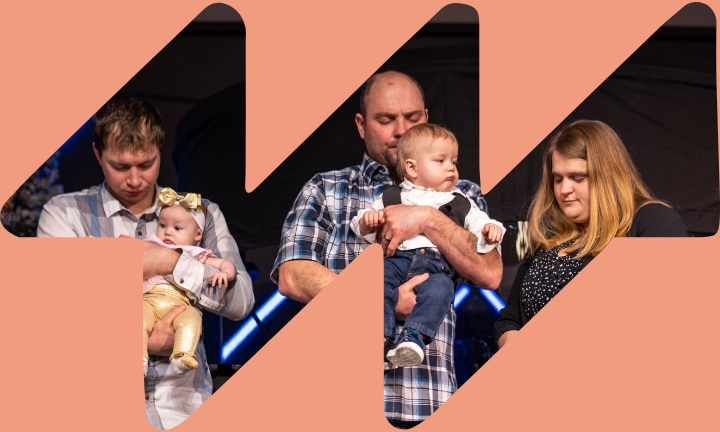There are few scenes in literature that provoke human emotions more than the cross. I try to keep the cross in the cross hairs of my thoughts throughout the year, not just in this season of Lent. The cross is inhumane, cruel to the highest degree and is used to intentionally bring suffering. It was a slow death and was meant for humiliation as much as punishment. For me, it becomes much worse, as I realize the cross was intentional, by the Fathers plan of redemption. It is impossible for us as humans to totally grasp that scene. Hanging there was Jesus, the very Son of God. Through the process of incarnation, The Son of God left the bosom of the Father to live among us, and to be put to death on the cross. I cannot understand grace, unless I understand it through the cross. I should have been there. But the very Son of God offered to take my place. I purposefully attempt to put myself there with Jesus, as I sit and take communion.
Some of the ones responsible for the death of Jesus were not there physically that day to watch the gruesome scene, but they were the ones who made the decision that He should be crucified. Herod, the ruler, put in place by Rome, and Pilate, who was a Roman governor and Annas, who was a Jewish High Priest, none of them were physically there but each of them could have stopped it. I try to understand the emotions of the Roman Centurion, who oversaw the proceedings that day; did he show any emotion at a place of suffering like this? Perhaps he had become so accustomed to violence that he just considered it all a part of his duty as a Roman Legionnaire. Perhaps others of us today have drifted into the same mindset. We have heard the story so many times, we just want to move on to other things that bring the warm fuzzies and not think of what the Son of God has done on our behalf. Some things we must never forget.
There were other people there that makes me wonder “why were they there?” The body of Jesus died on that day and, according to custom, the body would stay on the cross until either the birds ate the flesh or friends came to dispose of the remains. Here we find the names of two men who previously have not been mentioned. They are Joseph of Arimathea and Nicodemus. They are both members of the Sanhedrin, the ruling body of religious leaders, and they are both wealthy Jewish men. Both of them have been previously mentioned in the Gospels regarding their interest in who Jesus really was. Joseph had to be there. He noted the time of Jesus’ death and went to Pilate. He told the governor that Jesus had died, and he asked permission to remove the body from the cross and care for it. Pilate doubted that Jesus had died so soon, as usually it takes at least a full day. He sends a Roman soldier to investigate and is told that indeed Jesus is dead. The Legionnaire, in charge of the scene had pierced the side of Jesus with his sword and blood and water had come out. Yes, Jesus was dead. So, Joseph is given permission to remove the body of Jesus. In my meditation, I attempt to see Joseph, as he removes the pierced naked body of Jesus from that cross.
Nicodemus is a more well-known man. He had a personal conversation with Jesus that is recorded for us in John 3. He comes to Jesus at night. Why at night I am not sure, but the question he asks still rings in my mind. He asks: “How can a man be born again? Can he enter the second time into his mother’s womb and be re-born”? I am convinced that Nicodemus had a life change, even though he was silent and even though he sat on the very board that condemned Jesus. I am convinced that there were at least two “no” votes on the crucifixion Of Jesus. As Joseph goes to Pilate to ask for the body of Jesus, Nicodemus goes to the marketplace and purchase 100 pounds of Myrrh and Aloes. 100 pounds! [John 19:39] Does that say anything to you regarding the character of this man?
Together, these two men, who are otherwise not mentioned in Scripture as being significant followers of Jesus, carefully take the body from the cross, wrap the body in clean linen strips, and woven into it are the 100 pounds of Myrrh and Aloe. They then take the body to a tomb that had already been hewn out of the limestone rock and they carefully place the body in the tomb and roll a stone into the opening. These two men step out of the privacy of their own personal lives, and care for the man who they believed to have come from God.
I ask, why was it that these two men, who are only briefly mentioned as being associated with Jesus, are the ones to care for His body after this tragic scene? I ponder as I think, and ask myself, “where were the other 11 men who for 3 years had been His close intimate followers”? Were they watching from a distance? Had they fled the scene out of fear or humiliation? Would I have dared to do what they did, go the Roman official, go to the marketplace and spend my own money for fragrances for someone else’s body to be buried?
Can you place yourself in this scene someplace? We have looked at the politicians, who from a distance made the decisions for the death of Jesus. We have looked at the gruesome scene on Golgotha’s summit. There were the cynics who cried out, “He saved others, let Him save Himself”. “If you are the Son of God, come down from that cross”. There were the legionnaires, concerned only in doing their duty, and there were the two men who were crucified with Jesus, one cynical, the other repentant. And then, these two unknown men, dignified, wealthy, holding significant positions in the Jewish community. Watch them, as they carefully take the body of the Son of God off that cross, carefully care for it, and put it in one of their tombs.
So, I ask again, where would you place yourself in this scene? We would love the hasten to Sunday, with all the celebration and fanfare that goes with it, but my friend, there is no way that we can get to Easter, without going through the cross. We like the celebration of Easter, and rightfully so, but let us not get to Easter as a day of celebration and forget about the Son of God on the cross, who cries out in His suffering, “My God, My God, why hast thou forsaken me”.
I know why He was literally forsaken by His Father. It was because at that moment of divine crisis, The Father turned His back, and could not look at His own Son, who was paying for the sins of the world.
Please do not get me wrong; I love Easter and will celebrate that day, but I will also weep, as I prepare for Easter, thinking of how I can become a Son of the Very God Himself because someone else made it possible.
Praise God from whom all blessing flow.
Praise Him all creatures here below.
Praise Him above ye heavenly host.
Praise Father Son and Holy Ghost!



